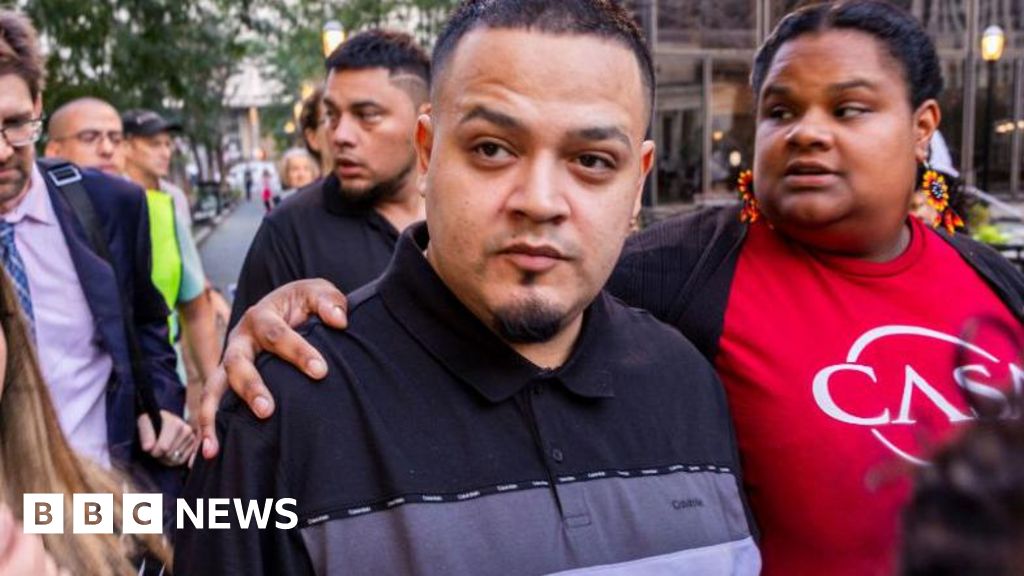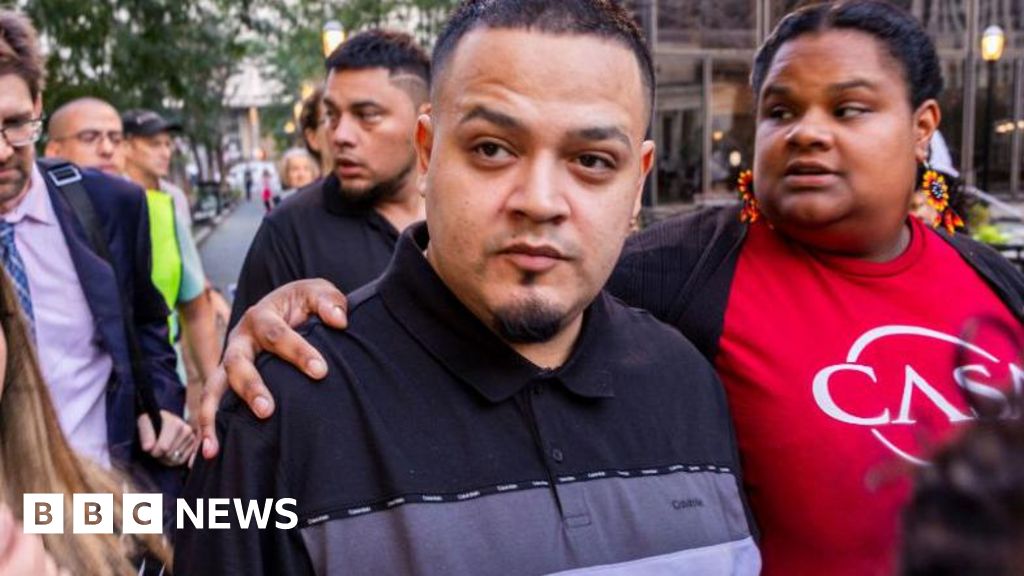
The Trump administration has told Kilmar Ábrego García, a Salvadoran man at the centre of a long-running immigration row, he could be deported to the southern African kingdom of Eswatini.
In an email to his lawyers seen by the BBC’s US partner CBS, an immigration officer said they were changing last month’s decision to send him to Uganda, after Mr Ábrego García raised fears of persecution there.
The officer said the claims were “hard to take seriously” but the US would “nonetheless” agree not to send him there.
It is at least the fourth country floated as a potential destination for the 30-year-old. He was mistakenly deported to El Salvador in March, and then returned to face criminal charges.
US officials acknowledged at the time that he was removed in error.
In June he was brought back to the US, where he was detained and charged with human smuggling. He pleaded not guilty.
Trump officials claim that he is a member of the MS-13 gang, an accusation he also denies.
His deportation case has become a focal point in the administration’s crackdown on immigration.
Mr Ábrego García has no connection to Eswatini.
Previously known as Swaziland, Eswatini is surrounded by South Africa and Mozambique. It is one of the last remaining absolute monarchies in the world, and has been led by King Mswati III since 1986.
The US has already deported five people to Eswatini, describing them as “criminal illegal aliens” to the country.
The move sparked concern in the small nation that it was becoming a dumping ground for criminals.
Eswatini has not confirmed whether it receives payments for the deportation deal struck with the Trump administration.
The US is the fourth-largest market for the country’s biggest export, sugar. Analysts suggest that Eswatini may be trying to safeguard this trade and avoid tariffs.
Mr Ábrego García entered the US illegally as a teenager from El Salvador. In 2019, he was arrested with three other men in Maryland and detained by federal immigration authorities.



